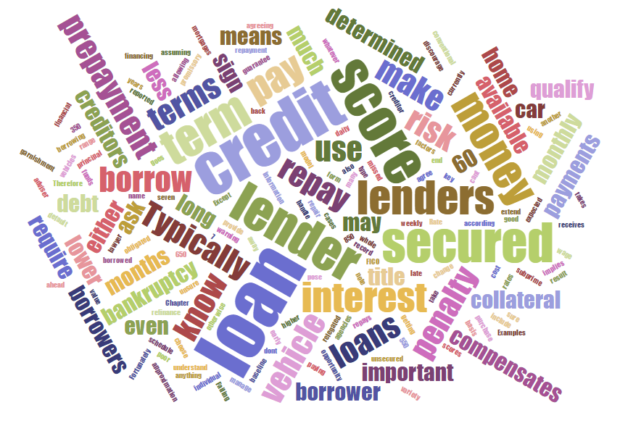Financial Terms to Understand Before Getting a Loan

When you borrow money from a lender, you are obligated to repay that loan according to whatever terms that you agree to. Therefore, it is important that you know and understand those terms before you sign a promissory note or make any other guarantee to make the lender whole again. What are a few key terms that you should know before getting a loan?
What Is Your Credit Score?
Your credit score is an approximation of the risk that you pose to a creditor. Most creditors use some form of the FICO credit score model, which can range from 350 to 850. Those who have a credit score of under 550 are typically relegated to borrowing from subprime lenders while those with a credit score of over 650 typically qualify for conventional financing. You can find out more about your credit score online at sites such as Cafe Credit.
How Is My Credit Score Determined?
Credit scores are determined by a variety of factors such as how long you have had credit or how much available credit you are currently using. If you have late or missed payments on your record, that may be a warning sign to lenders that you can’t handle debt. Except for Chapter 7 bankruptcy, information reported to credit agencies by creditors goes away after seven years. This means that your score can change on a monthly, weekly or even daily basis.
What Is the Loan Term?
The term of the loan is how long you have to repay the money that you have borrowed. If you ask a lender for 60 months to pay for a car or to pay for a home repair, the term of the loan is 60 months. In many cases, you can either pay off the loan before the end of the term or refinance the loan to extend its term and lower your monthly payments.
What Is Your Interest Rate?
When you borrow money, you are expected to pay back the principal with interest. This compensates the lender for the risk he or she takes when allowing you to use his or her funds to make a purchase. It also compensates the lender for the opportunity cost of not having his or her money available during the repayment term. Typically, those who have a higher credit score will have lower interest rates as they are less of a risk to default on the loan.

What Is a Prepayment Penalty?
Some lenders choose to include a prepayment penalty to discourage borrowers from paying off the loan ahead of schedule. If a borrower repays the loan early, it means that the lender receives less interest on the loan. Fortunately, most lenders don’t require a prepayment penalty assuming that you have good credit and otherwise qualify for the loan.
What Is Collateral?
A loan can either be secured or unsecured. Secured loans require the borrower to provide collateral to the lender. Examples of secured loans are mortgages that are secured by the borrower’s home and car loans that are secured by the vehicle. A vehicle title loan is another type of secured loan. As the name implies, the loan is secured with a vehicle’s title, and lenders use the value of the vehicle as a baseline for how much an individual may borrow.
It is important that you know how to manage your debt. Failing to repay a loan could result in a poor credit score, wage garnishment or even bankruptcy. If there is anything about a loan that you are unsure about, be sure to ask a lawyer or financial adviser before agreeing to take the money.

